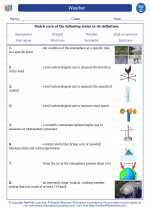Complementary Medicine
Complementary medicine refers to a group of therapeutic and diagnostic practices that are used alongside conventional medical treatments. These practices are not considered to be part of conventional medicine, but they are used in conjunction with it to provide a more holistic approach to healthcare.
Types of Complementary Medicine
- Acupuncture: This involves the insertion of thin needles into specific points on the body to alleviate pain and promote overall wellness.
- Herbal medicine: The use of plants and plant extracts to treat various health conditions.
- Yoga and Meditation: These practices focus on mental and physical well-being through breathing exercises, meditation, and specific body postures.
- Massage therapy: The manipulation of muscles and soft tissues to enhance a person's well-being and reduce stress.
- Chiropractic care: This focuses on the diagnosis and treatment of mechanical disorders of the musculoskeletal system, particularly the spine.
Benefits of Complementary Medicine
Complementary medicine can provide several benefits, including:
- Relief from symptoms and side effects of conventional medical treatments
- Reduced stress and improved mental well-being
- Improved physical health and overall wellness
- Support for chronic conditions
Study Guide
Here are some key points to remember about complementary medicine:
- Define complementary medicine and give examples of different types of complementary therapies.
- Explain the benefits of using complementary medicine alongside conventional medical treatments.
- Discuss the importance of consulting with healthcare professionals before trying complementary therapies.
- Explore the cultural and historical roots of specific complementary medicine practices.
- Research and present case studies or testimonials of individuals who have benefitted from complementary medicine.
By understanding complementary medicine, you can appreciate the diverse approaches to healthcare and make informed decisions about integrating these practices into your overall wellness routine.
.◂Science Worksheets and Study Guides Third Grade. Weather
Study Guide Weather
Weather  Worksheet/Answer key
Worksheet/Answer key Weather
Weather  Worksheet/Answer key
Worksheet/Answer key Weather
Weather  Worksheet/Answer key
Worksheet/Answer key Weather
Weather  Vocabulary/Answer key
Vocabulary/Answer key Weather
Weather  Vocabulary/Answer key
Vocabulary/Answer key Weather
Weather 

 Worksheet/Answer key
Worksheet/Answer key
 Worksheet/Answer key
Worksheet/Answer key
 Worksheet/Answer key
Worksheet/Answer key
 Vocabulary/Answer key
Vocabulary/Answer key
 Vocabulary/Answer key
Vocabulary/Answer key

The resources above cover the following skills:
EARTH AND SPACE SCIENCE (NGSS)
Earth’s Systems
Students who demonstrate understanding can:
Represent data in tables and graphical displays to describe typical weather conditions expected during a particular season.